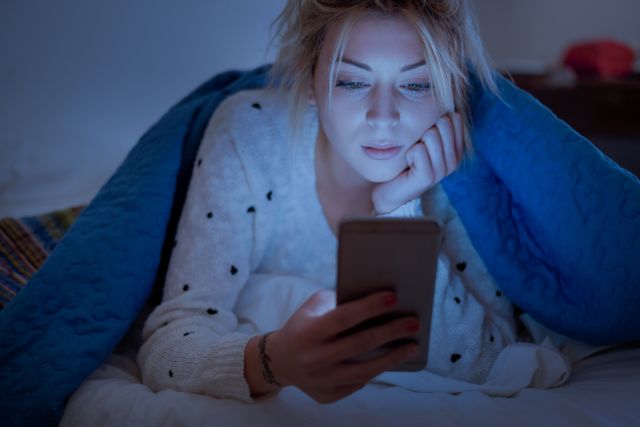Updated on February 9, 2024.
Many people experience insomnia at some point in their lives, but the condition can mean different things to different people.
In general, insomnia is a sleep disorder that causes people to have trouble falling asleep, staying asleep, or getting enough sleep. Learn more about the different types of insomnia and the importance of seeing a healthcare provider (HCP) when you aren’t getting enough sleep.
Acute vs. chronic insomnia
Insomnia can be categorized as acute or chronic, depending on how long a person has been experiencing symptoms:
Acute insomnia (also called short-term insomnia or adjustment insomnia) can last a few days up to a few weeks. It is more common in women and older adults. It is often caused by high levels of stress or disruptions to a normal schedule.
Chronic insomnia (also called long-term insomnia) is marked by having trouble sleeping at least three times a week for at least three months. In some cases, it can continue indefinitely. Chronic insomnia is often a symptom of another medical condition or a side effect of a medication. Sometimes there may not be a direct cause, in which case the insomnia itself is considered the primary condition.
Understanding the different types of insomnia
There are different types of insomnia that can be either acute or chronic. These include:
Sleep-onset insomnia: This type occurs when you have difficulty falling asleep. You may be stressed or worried and unable to let your mind relax.
Sleep-onset insomnia can also occur when your body’s circadian rhythm (its natural sleep cycle) is interrupted due to factors like jet lag or working irregular hours. It’s sometimes the result of delayed sleep-wake phase disorder (DSWPD), which happens when you are unable to fall asleep at your desired bedtime.
Sleep-maintenance insomnia: This type occurs when you have trouble staying asleep throughout the night or wake very early in the morning and are unable to fall back asleep (which is sometimes called early-morning awakening insomnia). This type is more common in older adults.
Sleep maintenance insomnia can also occur as a result of poor sleep habits. These may include consuming too much caffeine or alcohol, using nicotine or drugs, not getting adequate exercise, and using electronic devices around bedtime. It can also be caused by an irregular sleep schedule. For example, working late or waking up to care for a child during the night may alter your sleep schedule.
While these terms can help you understand your symptoms, sleep disturbances can overlap and change over time. Your symptoms may not fit within a specific definition.
Idiopathic insomnia: This is a type of insomnia with no identifiable cause. Behaviors, medications, habits, medical conditions, and stressors do not play a role. Researchers do not know why some people develop this type of insomnia, but it is thought to be related to abnormal functioning of the body’s sleep/wake systems.
Secondary insomnia: Also called comorbid insomnia, secondary insomnia refers to insomnia that is related to another health condition. Examples include anxiety, depression, substance abuse, gastroesophageal reflux disease (GERD), restless leg syndrome, overactive bladder, sleep apnea, and menopause. Chronic pain from conditions like rheumatoid arthritis or neurological disorders can also make sleep difficult.
Sometimes, even when the primary issue is treated, insomnia can persist. In these cases, HCPs have come to see insomnia as a standalone condition that requires immediate treatment.
The importance of sleep
A lack of consistent, restful sleep can contribute to a number of health issues, including cardiovascular disease and obesity. Reduced sleep can make it difficult to concentrate at work, school, or home and is a common cause of car accidents. Low quality sleep can affect your mood and contribute to depression and anxiety.
Conversely, getting enough sleep is beneficial to your health. It helps your body regulate blood pressure, reduce inflammation, and maintain your immune system. It’s associated with better memory, mood, and energy levels during the day.
In other words, getting a full night’s sleep is important to your physical and mental health. If you are struggling to get enough sleep, talk to your HCP about getting treatment for insomnia.







